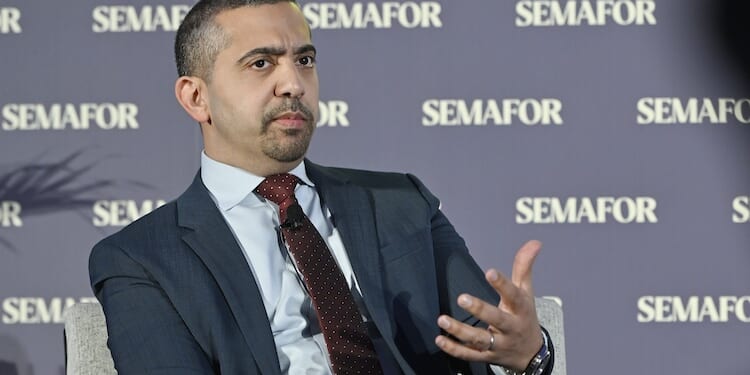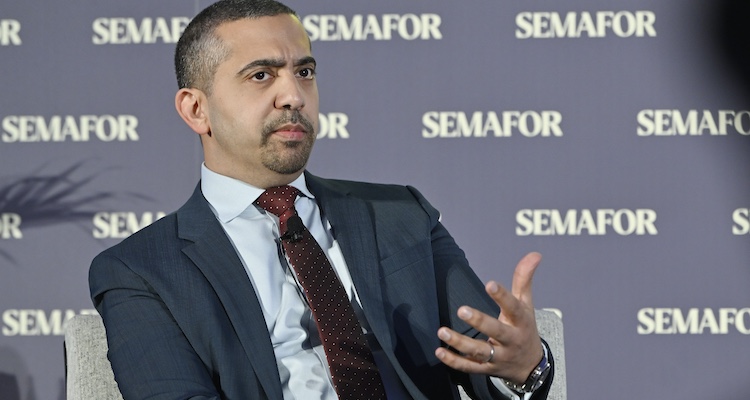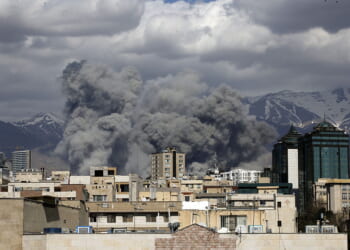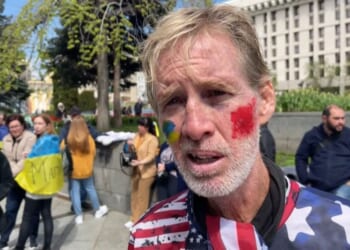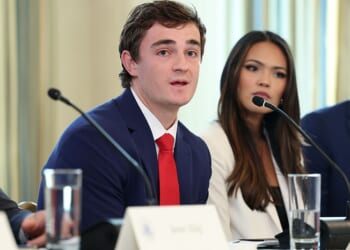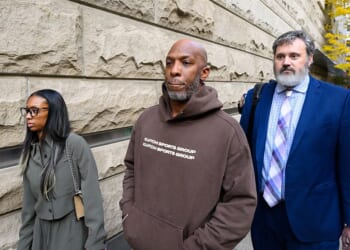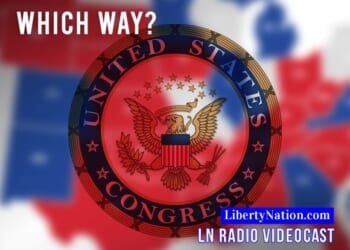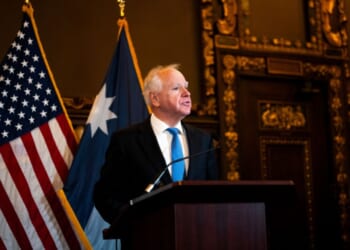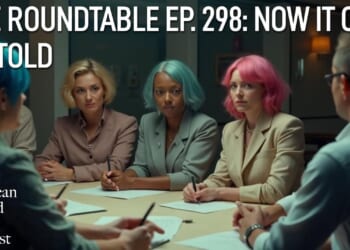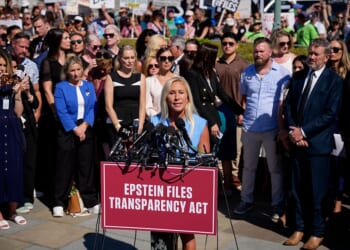Holocaust appropriation by the Palestinians and their allies seemed to reach a crescendo during the two-year Gaza war. But it turned out to be only the beginning.
The desire to appropriate Jewish suffering isn’t new, especially for the Palestinians. But the post-war explosion of Holocaust envy, in which Gazans are encouraged to call themselves “Holocaust survivors,” suggests a wider cultural obsession with what is essentially mass identity theft: a Talented Mr. Ripley-style drama but involving nations instead of individuals.
The organization CyberWell has documented what many on the internet have noticed since the cease-fire. As i24 News explains regarding the findings of CyberWell’s latest study:
“Between October 10 and 14, the phrase ‘Holocaust survivor in Gaza’ appeared in 3,200 posts on X, generating 25,000 interactions and reaching nearly 893,000 users. The phrase ‘I am a survivor of a real Holocaust’ was posted 523 times between October 10 and 12, with 6,700 interactions and a reach of 184,700 users.
“The general expression ‘I am a Holocaust survivor’ has experienced a dramatic increase: 20,200 posts between October 10 and 14, 93,300 interactions, and a potential reach of 17.1 million users. Since the ceasefire, the daily average has risen from 2,854 to 4,040 posts per day, an increase of 42%.”
Michael Starr of the Jerusalem Post had been one of the first to notice the trend. There are those ostensibly from Gaza who, he discovered, added phrases like “I am a Holocaust survivor” to their social media bios. Others posted the phrase alongside pictures of themselves; unlike actual Holocaust survivors, these Gazans were dressed to the nines, their outfits accessorized for Instagram. The high-follower account Middle East Observer declared that “Israelis can’t use the Holocaust anymore” because that “torch has been passed to Gaza.”
But the problem persists beyond everyday Gazans or internet trolls and their boosters. A couple weeks ago former MSNBC personality Mehdi Hasan, a professional anti-Zionist with nearly 2 million followers on X/Twitter, posted the following:
“One of the ways in which the Gaza genocide is worse than a lot of previous Genocides—Rwanda, even the Holocaust—is that you didn’t have Hutus or Nazis mocking the genocide after it was over.”
Obviously the assertion about “mocking” is false. But the real point of his post was to compare the Holocaust favorably to Gaza, a war between armies in which unprecedented care was taken to protect civilians by the IDF, as we now know definitively thanks to post-war data collection. Hasan’s post isn’t traditional Holocaust denial, although it serves the same function. It’s one mere step, however, beyond what Western elites are doing when they bang the “Gaza genocide” drum and—as the odds-on favorite to be the next New York City mayor does—vows to arrest the elected leader of the Jewish state.
But it highlights something else that the Jewish communities under assault from these forces need to grapple with. Much has been discussed about the future of Holocaust education after October 7, and no doubt that debate will continue. But what’s so dispiriting about the “Gaza Holocaust” trend is that it threatens to undermine the entire point of Holocaust education.
The underlying assumption of the concept of Holocaust education is that people want to know and disseminate the truth. But Hasan already knows the uniqueness of the Holocaust, and it doesn’t stop him from posting the above message to millions online. I don’t think Zohran Mamdani or Marjorie Taylor Greene, for example, is uneducated. But the market for their version of anti-history is wide, and whatever social norms once existed to discourage the open propagation of that anti-history are gone. That much is clear watching Sen. Chris Murphy (D-Conn.) minimize concerns over a Democratic Senate candidate with a Nazi tattoo.
Certainly, to some extent, the universalizing tendency of Holocaust lessons has enabled this. But clearly something darker is going on. The combination of Holocaust envy among Israel’s opponents in war and Holocaust revisionism among Israel’s critics suggests the loudest voices on this issue are the ones who believe they have the power to negate decades of education. What if they’re right?

